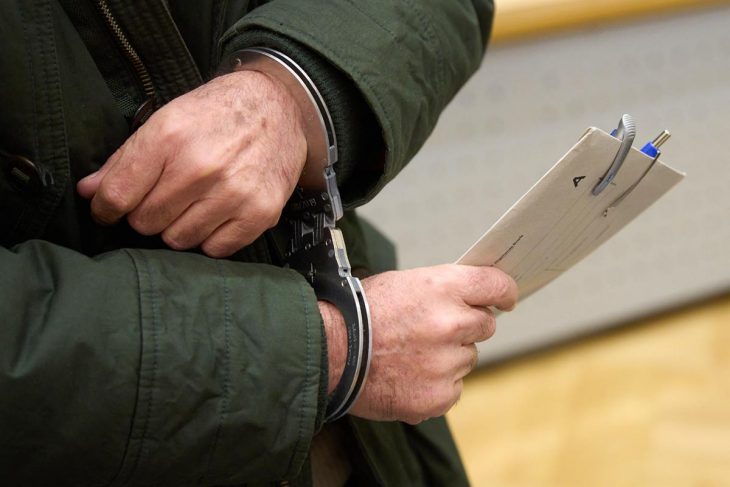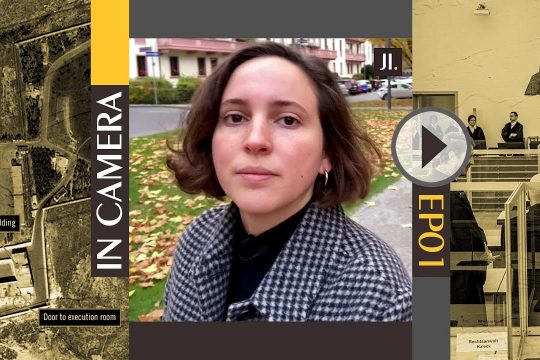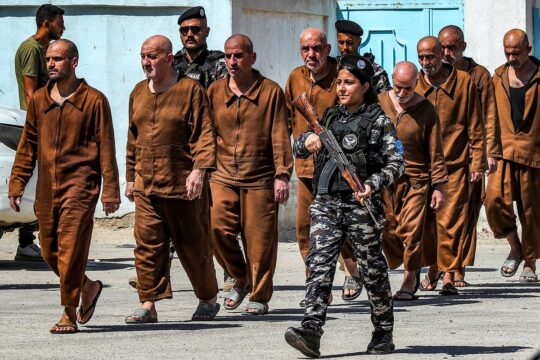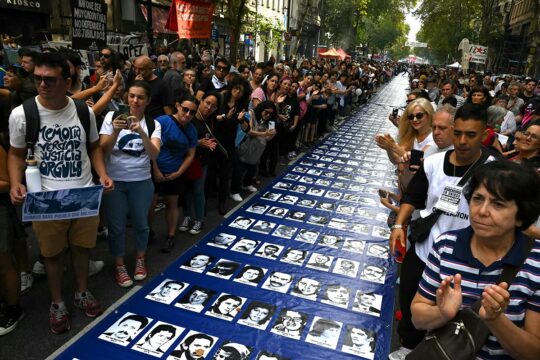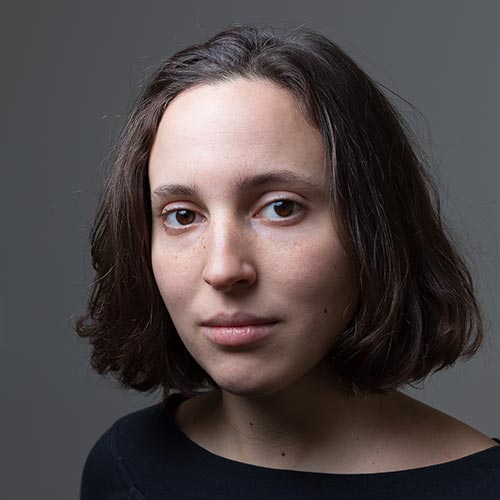After 103 days of hearings in the trial against Anwar Raslan, the Koblenz court closed the collection of evidence on the 1st of December. In the last weeks of 2021, the prosecution and joint plaintiffs presented their final statements. They argued that half of the 58 deaths in the indictment and all of the 4.000 cases of torture had been proven over one and a half years of trial. All of them demanded a lifelong prison sentence for Raslan. Six of the plaintiffs as well as seven of their lawyers made statements, adding some political and personal arguments to the prosecutor’s legal assessment, and criticizing some shortcomings in the worldwide first trial against Syrian regime officials.
Since April 2020, dozens of witnesses have testified about secret service Branch 251, or al-Khatib branch, in Damascus, where defendant Anwar Raslan was the head of investigations. He is accused of crimes against humanity that allegedly occurred under his responsibility in the branch and its underground prison. Since Raslan’s co-defendant Eyad al-Gharib was convicted for aiding and abetting crimes against humanity in February, the prosecution did not spend much time speaking about the framework of the crimes. The February verdict had defined what happened in Syria after 2011 as a widespread and systematic attack against a civilian population, meaning crimes against humanity. Therefore, the pleas in Raslan’s case focused mostly on his individual contribution to those crimes.
As a colonel in Branch 251, the prosecutors argued that he was responsible for the torture during and after interrogations, as well as for the general conditions in the prison that themselves amounted to torture. Many of the inmates had been closer to death than to life, said prosecutor Jasper Klinge: “Many are broken until today. Their tears and their unbelievably deep sadness that wrapped every word they spoke, every gesture and sometimes even the whole courtroom into a dark veil were proof of their dire condition.”
A high-ranking meeting in 2012
One of the main lines of Raslan’s defense had been that despite his rank and position he had lost all his authority in the branch in spring 2011, after he had helped so many prisoners that he was seen as disloyal by his superiors. The prosecutors took their time to dismantle this argument that the defendant himself had presented in his initial statement. They argued that he had never mentioned this before the beginning of the trial, even though he would have had several opportunities to do so, for example during his asylum procedure and when he filed a complaint with the Berlin police.
They also quoted a witness who knew that the colonel was present at an important meeting with the highest ranking secret service officers, as late as November 2012. “It is ridiculous to assume that he would have been invited to such an elitist meeting if he had been considered untrustworthy”, argued Klinge. “His statement does not make sense. It is not logical that the regime would leave a secret service officer who is considered disloyal in his position pro forma.”
In addition, he mentioned several ex-prisoners who had testified that they met Raslan during their detention and saw him give orders or make decisions. Raslan himself had listed some of these to speak in his favor, since he had treated them well and released them from the branch. The prosecution, however, came to a different conclusion: “He was either powerless, then he could not have helped prisoners, or he wasn’t. Both is not possible.”
The therapeutic effect of the trial
Regarding the number of victims, the prosecution stuck to its original number of 4.000 cases of torture, as mentioned in the indictment. Based on testimonies of several witnesses and secret service insiders who had mentioned the number of prisoners in Branch 251, they estimated a total number of 4.000 prisoners during the time of the crimes. Since the first verdict in February 2021 had stated that the prison conditions in the branch amounted to torture, the prosecution counted every inmate as a victim. They found that 30 deaths had been proven – 28 less than originally indicted – and as many as eleven of them on the testimony of Raslan’s former co-defendant Eyad al-Gharib. Considering the high number of victims and the long duration of the crimes, the prosecution not only demanded a lifelong prison sentence for Raslan. They asked the court to acknowledge the particular severity of his guilt, which would make it impossible for him to benefit from an early release even after he has spent 15 years in jail, as is the case with ‘conventional’ life sentences.
During his plea, prosecutor Klinge quoted the Jewish Austrian poet Jean Améry who had been persecuted by the Nazis. Améry wrote that “whoever has succumbed to torture can no longer feel at home in this world.” Klinge went on to say that he hoped this trial had helped some of the survivors of al-Khatib feel that sense of belonging once again. And indeed, the joint plaintiffs who gave their statements during the following two weeks, pointed out the positive effect that the trial had had on them.
“I used to tell people the story of how I was detained and my rights were abused”, said Ruham Hawash. “Now that story continues, and I can tell them how I helped hold one of the perpetrators accountable.” Another plaintiff, who had worked as a psychiatrist in Syria, compared his experience of the trial with psychotherapy. He referred to the Austrian psychiatrist Viktor Frankl who said that one needs to find purpose in suffering in order to survive. “My participation in this trial, as hard as it may have been, has helped me find that purpose”, he said, adding that he wanted to contribute to uncovering the regime’s torture machinery and make sure that these crimes would not happen again.
“Ask God for forgiveness”
Another plaintiff, the Syrian blogger and ex-detainee Hussein Ghrer, spoke about the crime of enforced disappearance. He compared the disappeared person to Schroedinger’s cat: nobody on the outside knows whether they are dead or alive. And because of that uncertainty, he said, it was one of the most painful experiences for friends and family. With more than a hundred thousand Syrians still missing, the issue of enforced disappearances plays a major role in the Syrian diaspora’s fight for justice. Not in the Koblenz trial, however: the request by the joint plaintiffs to include this crime to the indictment against Raslan had not been supported by the prosecution and had been rejected by the court.
This point was emphasized again by the plaintiffs’ lawyers. In addition, they criticized the court’s lack of outreach to the Syrian community, its refusal to offer translation for the public gallery, and the fact that a regional court like the one in Koblenz did not have the means for protecting witnesses that would be necessary in an international trial. “Other trials will have to deal with these same challenges”, said lawyer Anna Oehmichen, “which is why it is important to learn from this one.” All the more disappointing that the court had refused to record the hearings and even the final pleas, she added.
Finally, all the lawyers as well as the prosecution, called on the defendant to tell the truth. One lawyer, himself a Muslim, appealed to Raslan on religious grounds: “If a person has done something bad, our religion offers a solution: to repent earnestly, and to ask God for forgiveness.” Blaming his superiors and denying his own responsibility was not going to do the job, he added, and like the other lawyers he urged Raslan to use his last words before the verdict to break his silence and share all the inside information he had on the Syrian secret services. The defense will have their time to answer, starting on January 6.


